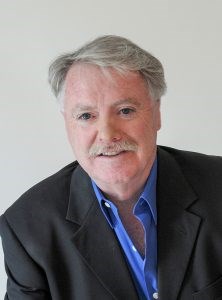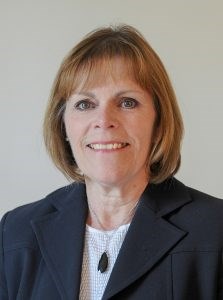Note: The Journal invited Sarnia’s four mayoral candidates to participate in a Q&A. Fred Ingham did not respond. Kip Cuthbert acknowledged receipt of the questionnaire but did not participate.

MIKE BRADLEY
Mike Bradley has been Sarnia’s mayor for 30 years and is seeking a 10th term. He is Ontario’s second longest serving mayor. When elected in 1988 he became the youngest mayor in the city’s history. He has chaired a long list of committees and boards, including the Sarnia-Lambton’s Economic Partnership and Police Services Board. In recent years, he has earned accolades from across Ontario for his accessibility advocacy.
Over the past term, two separate reports concluded he had harassed and bullied senior city staff. Council docked his pay and urged him to take training on harassment in the workplace, which he has not done to date.
JOURNAL: Sarnia has a $355-million infrastructure deficit. What ideas do you have to find funding and upgrade facilities and roads?
BRADLEY: Dramatically reducing the city's debt since 2004 has paid big dividends, freeing up more dollars for infrastructure. Not enough though. Canadian cities have a $6-billion infrastructure deficit. Sarnia is part of that deficit. I have championed, nationally and provincially, a new deal for Canadian cities and will continue to do so working with other mayors so we can do more to improve Sarnia and Canada.
JOURNAL: What personal strengths would you bring to the job of mayor?
BRADLEY: I am tried, tested and true, working for 30 years to improve the lives of Sarnians, demonstrating leadership that works and works. I bring integrity, commitment, determination, passion, resilience, openness, moral purpose and a much-needed sense of humour to the mayor's position.
I am a servant of the people, not the special interests.
JOURNAL: Sarnia’s ratepayers have witnessed four years of dissension on its nine-member council. As mayor, how would you bring harmony back to City Hall, regardless of which councillors are elected?
BRADLEY: A new council brings a new dawn of opportunity, ideas, reconciliation and renewal. Will continue to provide full-time leadership working with council, business, labour, educators, First Nations and others to build the “New Sarnia-Lambton.” All councillors, including the mayor, need to set aside personal agendas and focus on the city agenda.
JOURNAL: Would you be willing to participate in sensitivity training sessions on harassment in the workplace?
BRADLEY: Yes. Training in the past has not been mandatory for council and should be along with other municipal training.
JOURNAL: How do you grade the city's progress at Information Technology? Do you think more or less should be spent on IT at City Hall?
BRADLEY: Information Technology is important, however, the cost must reflect the ability of citizens to pay given the many other needs in the city.
Massive increases in IT costs came at the expense of basic services, including cutting four firefighter positions, higher taxes, eliminating the open, friendly reception desk at City Hall, with decreased access for the public and cuts to other basic citizen services like waste pick-up and eliminating the Show mobile, closing Jackson Pool and the Kinsmen Center.
JOURNAL: The Mitton Village neighbourhood is under stress with closed storefronts, vandalism and drug use. What possible solutions would you bring to the table?
BRADLEY: It takes a village to build a village. Brought skills of listening and building consensus to the vibrant renewal of downtown and will do the same for Mitton Village.
Solutions need to come from the business/property owners supported by the city. My plan would include social solutions, infrastructure improvements, business building and crime prevention strategies.

ANNE MARIE GILLIS
After serving as a councillor for 15 years, Anne Marie Gillis is running for mayor. She was born and raised in the Maritimes and moved to Sarnia with her husband 42 years ago. She worked as a registered nurse and has three grown children. Gillis has been a city/county councilor since 2006 and served a term as Lambton County’s deputy warden.
Over the past term, she was appointed an intermediary between city employees and the mayor after a workplace investigation found Mike Bradley bullied and harassed senior staff. She entered the race by declaring City Hall has “toxic leadership” and promising to be an approachable alternative that would work with council.
JOURNAL: Sarnia has a $355-million infrastructure deficit. What ideas do you have to find funding and upgrade facilities and roads?
GILLIS: The city is working on a sustainable plan to decrease the infrastructure backlog. It is imperative to identify facility repair, rehabilitation and replacement needs for capital funding. My goal is to achieve a controlled decrease in the infrastructure backlog by a:
* Strategic use of debt
* Preventative maintenance plan vs. reactive/emergency maintenance
* Use of technology to reduce replacement/rehabilitation costs or increase life expectancy
* Do we need to replace assets with the same thing or is there a less expensive model available in 2018 that will meet the same need at a greatly reduced cost?
JOURNAL: What personal strengths would you bring to the job of mayor?
GILLIS: My training as a Registered Nurse, working on the CCU unit taught me the skill sets to work as a team leader, crises manager, with good communication skills and most notably to hear what people are telling you. I have honed these skills as a Separate School Board Trustee, a city, city/county councillor of Sarnia, deputy warden of Lambton County and chair of the Sarnia Police Services Board. I am a consensus builder, who is a collaborative leader. I build relationships so as to achieve a common goal, building up the City of Sarnia, to grow in population and bring jobs and prosperity back to our city.
JOURNAL: Sarnia’s ratepayers have witnessed four years of dissension on its nine-member council. As mayor, how would you bring harmony back to City Hall, regardless of which councillors are elected?
GILLIS: As mayor, I will be approachable and work with city councillors, recognizing the strengths that they bring as individuals to the table as independent thinkers. I will champion their decisions, and united we will be ready to do business with the people of Sarnia, developers, industry large and small, business and commerce, First Nations and senior levels of government to move Sarnia forward in growth and prosperity.
JOURNAL: Would you be willing to participate in sensitivity training sessions on harassment in the workplace?
GILLIS: I have and I will.
JOURNAL: How do you grade the city's progress at Information Technology? Do you think more or less should be spent on IT at City Hall?
GILLIS: We live in a digital age. Our lives have been transformed and, as a result, people’s expectations have changed particularly in the way services are delivered. People want the ability to pay tax bills online, get permits online, and sign their children and grandchildren up for programs online. City departments need a dependable IT department that can solve problems, fix equipment and provide technical support in a timely fashion.
The “Prior and Prior” report gave City Hall a failing grade in its ability to service the needs of the public and the needs of the workers who depend on IT support to provide service to the public. The city has made huge strides to improve the IT department on all fronts, adopting some but not all the recommendations. The city cannot lag behind and it must be a top priority for the incoming council if we really believe in our motto,” People Serving People.”
JOURNAL: The Mitton Village neighbourhood is under stress with closed storefronts, vandalism and drug use. What possible solutions would you bring to the table?
GILLIS: Sarnia City Council established the Mitton Village Community Development Advisory Committee as a result of the stress encountered by this once vibrant community. The very name of the committee denotes what needs to be done. It will take a community effort to revitalize this neighbourhood. Investment is starting, derelict buildings are coming down. Local entrepreneurs have stayed and re-invested in the Mitton Street and I support them by shopping at their stores. I will listen to the advice of the advisory committee whose very make-up consists of people who live and work in the neighbourhood, and I will act on their advice. Help is on the way.
